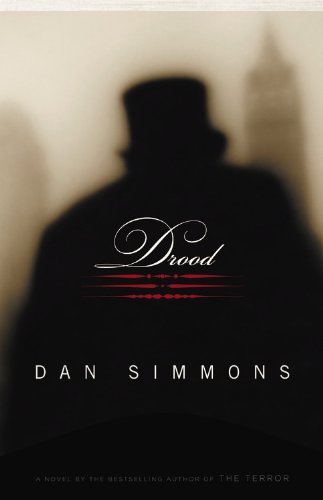Drood
In 1865, Charles Dickens, returning from a holiday with his mistress and her mother, is involved in the disastrous railway accident at Staplehurst. As Dickens wanders through the carnage, helping to tend the injured and dying, he encounters a strange figure, calling himself “Drood.” But who is Drood? Is he a figment of Dickens’s imagination? Or that of the narrator, Dickens’s friend and literary rival, the opium-addicted Wilkie Collins? Or that of Inspector Field, the detective who claims that Drood is a master criminal who must be brought to justice?
Normally, I prefer my fiction straightforward, with a reliable narrator bringing us smoothly from point A to point B, but Drood was a delightful exception for me. Reliable or not, Collins is a vastly entertaining narrator, who, when he is not fretting about Drood and the ever-present Inspector Field, is shuttling between his rival mistresses, gulping copious amounts of laudanum, and grousing about his friend Dickens’s greater success as a novelist (though, as Collins never tires of reminding us, his last effort outsold Dickens’).
As befits a novel with Dickens as a major character, Drood is a doorstopper of a book, with a vast number of characters, most of them historical. Though the novel by no means feels top-heavy with historical facts, Simmons appears to have omitted no detail of Dickens’s last years, with even a doomed dog of Dickens making several appearances. The dialogue is sharp, with each character having a distinct voice, and the descriptive writing is vivid, with the grisly Staplehurst scenes being particularly memorable.
Familiarity with Dickens and his works isn’t a prerequisite for enjoying Drood, though it certainly adds to the reader’s pleasure. Those wanting a thoroughly original, deftly written novel should make haste to read this one.










